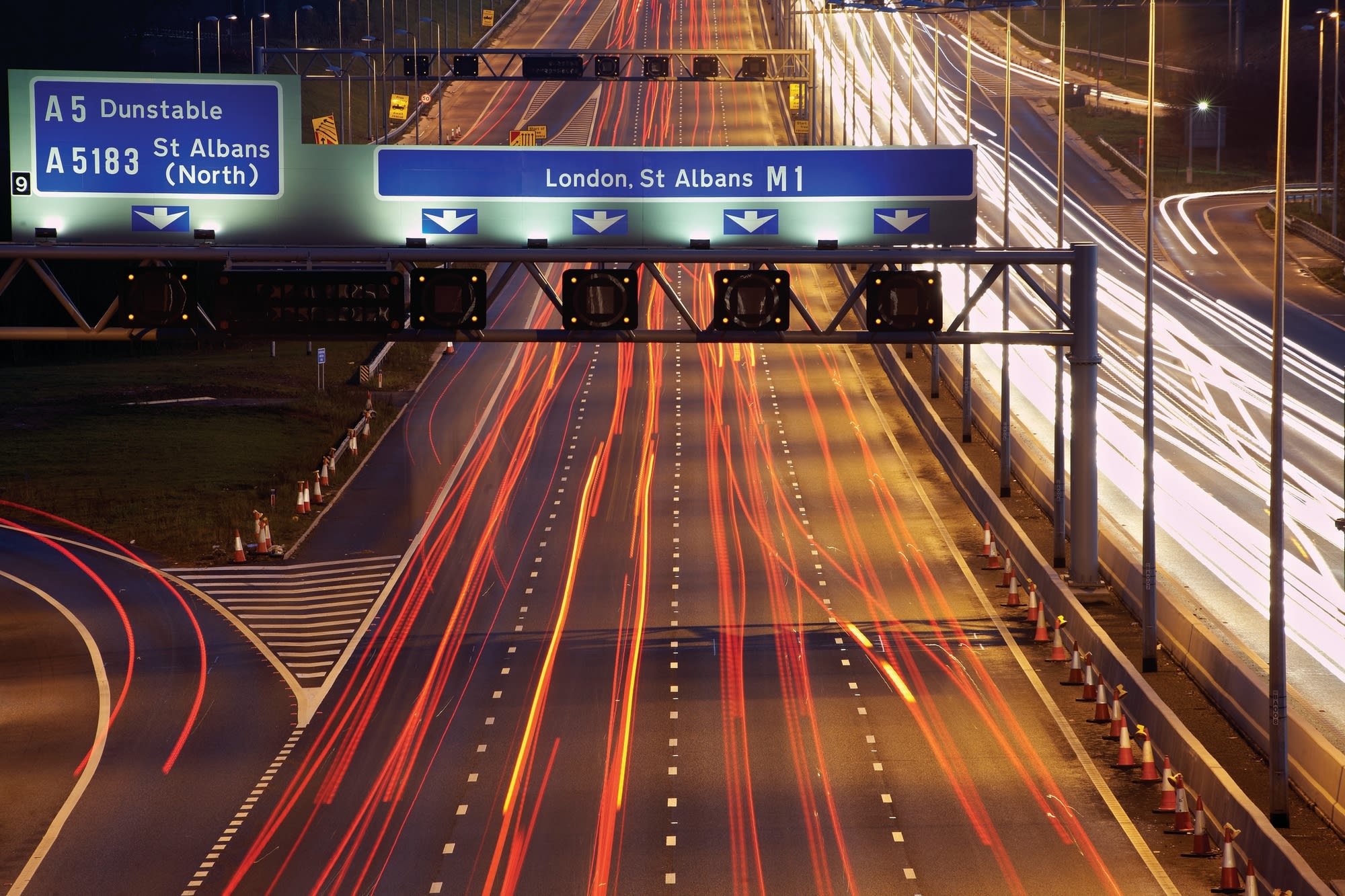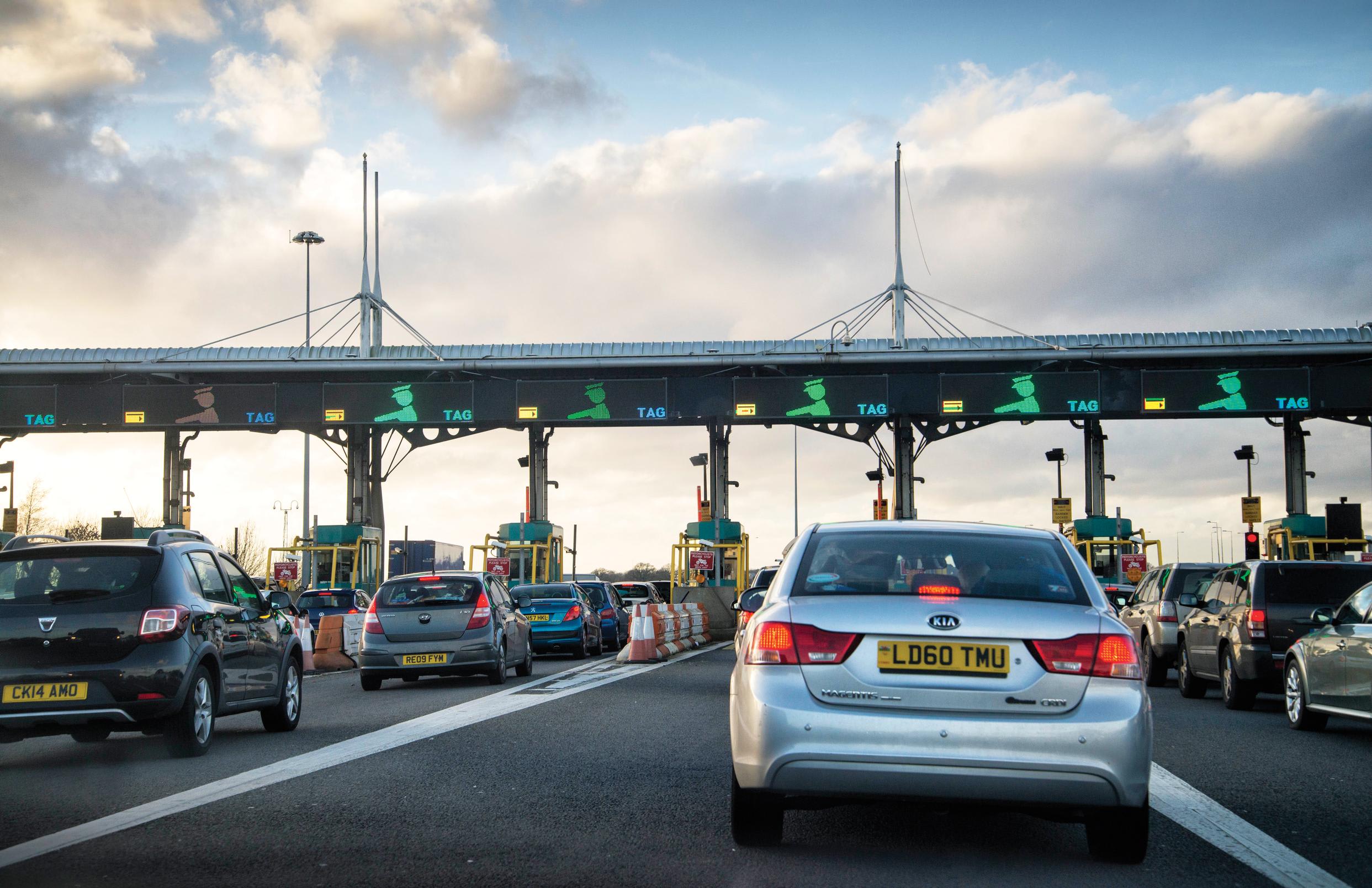A QUARTER of UK drivers would welcome motorway tolls, a new survey suggests. Some 26 per cent of motorists questioned said they would be willing to pay a levy if it meant better roads. And a third said they would also like to see the speed limit increased beyond 70mph.
The findings form part of our independent study into the opionions and habits of 1,200 UK motorists and emerge just as the UK is plunged into further debate on the state of it's roads. The results appear to reverse popular wisdom that the widespread use of M-levies would be universally unpopular.
While a sizeable chunk of drivers state they would be happy to pay, 38 per cent of respondents still said they would at least somewhat disagree with any such proposal.

But more than a third (36%) said they were still undecided on whether or not they would support tolls, neither agreeing nor disagreeing with their introduction. According to the AA, such charges would not work on British roads.
Theres tremendous suspicion about the way politicians would attempt to implement this, said spokesman Luke Bosdet.
Theres a feeling among many drivers that they already pay enough fuel duty raises £27 billion of tax and that, once the genie was out of the bottle on road tolls, the government would keep incrementally increasing charges.
The surveys findings come just a month after Britains oldest motorway tolls the M4 and M48 bridges between south-west England and Wales were scrapped. Analysts said cancelling the £5.60-per-car fee could boost the regional economy by £100 million. But levies remain in place for stretches of the M6 close to the West Midlands and at the M25 Dartford River Crossing, where they are credited by many with improving congestion.

Mark Tongue, Director of Select Car Leasing said: British roads are getting busier and perhaps imaginative thinking is needed to keep us moving.
While the majority are still against the introduction of tolls, the 26 per cent who would welcome M-levies represents a significant proportion of drivers. And our research shows over a third of motorists are still sitting on the fence.
Mark added: Although not suitable for all roads, in the right places they do work, like on the M6 or the M25.
In the interest of balance, our findings show it may be advantageous to look at how the introduction of a wider range of road tolls could improve the driving experience of millions. What our research shows is that, under the right circumstances, at least some British drivers would be willing to consider changes to some stretches of motorways. Of course the key to making this work would be to ensure any money levied would be limited, affordable and spent efficiently and transparently on improving roads specifically on measures to reduce congestion and improve journey times.

Last month, tolls to cross the Severn bridges into Wales the M4 and M48 were officially scrapped after 52 years. It had previously cost drivers £5.60 for a car, and the move is expected to save the average commuter up to £1,400 every year.
According to Transport Secretary Chris Grayling the toll had been a barrier to trade in the area and its removal will help transform the Severnside economy. The Welsh Government predicts the move will increase traffic on the M4 bridge by 20 per cent.
There are now around 20 toll roads in the UK, most of which are river crossings, and the majority of fees go towards maintenance, improvement and construction costs. The cheapest of these is the A57 Dunham Bridge crossing, which costs just 40p, but horses crossing the Cleddau Bridge Toll in Pembrokeshire are charged 35p.















